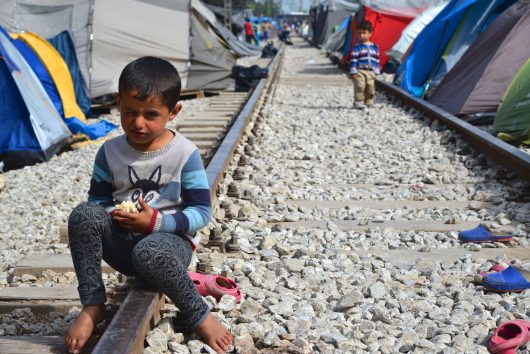Four Facts about Poverty in Macedonia

The small landlocked European country of Macedonia, located north of Greece, has only been officially declared an independent nation since 1991 after winning independence from Yugoslavia. During this short time, the population of Macedonia has struggled with the spread of poverty and remains among the ten poorest countries in Europe. Here are four facts about poverty in Macedonia:
- Nearly one-third of Macedonian citizens are poor. A calculated 30.4 percent of people in Macedonia live below the poverty line. Macedonia’s national population is just over two million people, which means a shocking 600,000 individuals are currently living below the poverty line. This is more than double the rate of poverty in the U.S., which measured at 13.5 percent in 2015.
- Political and ethnic tensions are contributing factors to the widespread poverty. Suspected government corruption in elections and ongoing prejudice between the Albanian and Macedonian populations prevent the stability necessary for economic improvement. As one Western diplomat claimed while choosing to remain anonymous, “When people have no money, they try to find someone to blame. In Macedonia’s case, ethnic groups blame each other for their misfortunes.”
- Unemployment is a major cause of poverty in Macedonia. The rate of unemployment in Macedonia was 23.4 percent in 2016, rendering one in four people unable to find work. The shift from a Yugoslavian command economy, in which the central government mandated many aspects of the market such as prices, incomes and investments, to the modern democratic economy, subject to volatile influences such as supply and demand, has left many citizens without job opportunities.
- Children may suffer the effects of poverty in Macedonia more than the adults. Even as progress is made to reduce the national poverty level, families with young children have far higher rates of poverty compared to the national average. According to a comprehensive study by UNICEF, the rates of poverty in Macedonia among households with children increased from 49.3 percent in 2002 to 66.6 percent in 2007. This is especially true among small-scale farmers in rural areas, who comprise 40 percent of the poor in Macedonia.
Future efforts to improve the economic standing of Macedonia will depend largely on expanding the job market and improving local infrastructure. Foreign investors may be able to solve both problems, especially from the United Kingdom and from Germany, as Macedonia continues to stabilize its new governmental structure and appeal to other European countries for support.
– Dan Krajewski
Photo: Flickr
